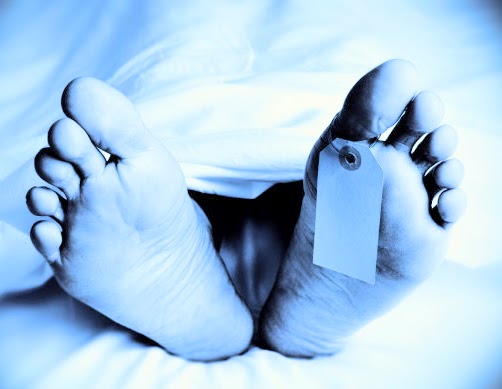Parliament voted against legalising assisted suicide yesterday by an overwhelming majority of 330 to 118. Of the 448 MPs voting, 73% opposed Labour MP Rob Marris’s proposed legislation with 210 Conservatives, 91 Labour MPs and 11 Scottish National Party MPs rejecting the Bill. Although it is generally thought there is widespread support for medical complicity in homicide, the Institute for Social and Economic Research has long said the online polling excludes many older people, disabled people and other natural opponents of euthanasia and its variants.
Disability rights groups, the medical profession, various charities and religious leaders opposed the introduction of the new legislation. Foremost among objections raised in Parliament was the concern that legalising assisted suicide would pressurise the sick, elderly, poor and vulnerable into ending their lives for fear of being a burden. The de facto extension of the practice in Belgium and Holland, from voluntary to nonvoluntary medical dying, from reported to unreported or misreported deaths, from consenting to non-consenting patients, e.g. children, babies, the mentally incapacitated and depressed, suggests the impossibility of imposing any genuine safeguards.
The Speeches
“It’s naive to believe that we can prevent the persuasion of an elderly, expensive or asset-rich relative being encouraged, coerced or emotionally blackmailed into taking their own life. And if just one person makes that decision to end their own life through such result of pressure, I believe, that would be an absolute tragedy,” parliament member Lyn Brown said.
Caroline Spelman made the point that there could be no real safeguards but that the Bill as presented was profoundly dangerous. “An opinion survey commissioned by the charity Scope last year showed that the majority of disabled people also fear change to the assisted dying law” she said. “There are surely reasons why most doctors are against this Bill. Only one in seven doctors would agree to assist a suicide, so the chances are that the doctor involved would not be known to the patient or the family, which is undesirable.” She went on: “This is also a Bill without any detailed, up-front safeguards. It outlines a process, but does not give enough detail about how it would work. The so-called “safeguards” are left to codes of practice; …, clause 1 suggests that the process must be entirely voluntary and initiated by a patient, but if assisted dying becomes regarded as a medical treatment, it is likely that a doctor would be under some positive obligation to suggest it to patients.”
Dr Liam Fox indicated that: “It is impossible to ensure that they and other vulnerable people would not be placed under pressure to end their lives prematurely in ways that proposed safeguards cannot hope to detect.” He went on to point out the incremental drift towards widespread homicide in hospital.
“Doctors in the Netherlands who have experience of assisted suicide recognise that failures will occur from time to time. Those failures make up around 7% to 16% of cases, and include failure to induce coma, or patients who come out of coma before the process is finished. The Royal Dutch Medical Association recommends that a doctor be present when assisted suicide is performed in the manner proposed in this Bill, precisely so that euthanasia can be performed, if necessary, if the process fails. In practice it is impossible to differentiate between assisted dying and euthanasia. If we have one, because of the failures of process we will inevitably get the other. I do not believe that that is an improvement to our society. However well-meaning the proponents of this Bill may be, they will open a Pandora’s Box that will fundamentally change who we are, how we are as a society, and how we relate to the medical profession. I believe that none of that will be to the benefit of future generations.”
Nadine Dorries highlighted the vulnerability of the many people who are alone and for whom the State must account when they are vulnerable or ill.
“There are people all over the country who do not have a family member or relative as their next of kin. They do not have loved ones. For them, the next of kin is the state. … When they feel that they are a burden or they feel under pressure, who will coerce them and who will feel the budgetary constraints involved in looking after them?”
Dr Sarah Wollaston referred to her own experience in the medical profession and the wider impact on patient trust:
“We have to consider the impact on wider society, too. I believe it is inevitable that we would slide towards the Swiss position, and we must consider what message it would send to people if we say that it is all right in society to end one’s life from fear of growing old. In Switzerland there is a high preponderance of people who live alone, who have been divorced, and who are women, and we have to think about why they have come to that position. What does it say if we have an attitudinal shift in our society, as I believe is inevitable, which changes the way we feel about the value of life? We have to consider not just the rights of the individual to self-determination, but the inevitable wider effects on society, and the pressure people will inevitably feel at the end of their life.”
Numerous persuasive speeches were made and the live debate is to be found here, while the written debate is available here.
Conclusion
Assisted suicide was last discussed in the Commons in 1997. The Bill’s parliamentary drubbing yesterday suggests that the matter should rest for as many years again. Whether it does so, given the determination of the euthanasia lobby to introduce medically assisted death, is another matter. Lord Joffe made no less than four attempts between 2003 and 2006, to introduce assisted suicide and voluntary euthanasia bills. All were rejected by Parliament. Interestingly, euthanasia was rejected by the House of Lords in 1936. The Voluntary Euthanasia (Legislation) Bill 1936 was vetoed in Britain while Germany at the same time introduced Aktion T4, the Nazi euthanasia programme. While the UK has overwhelmingly rejected the legislation, California, heedless of the irony, on the same day in history and quite literally as the sun set on World Suicide Prevention Day, voted for assisted suicide. So much for the lofty verbiage of suicide prevention then!
Against this international and historical backdrop, it seems the British House of Commons still takes seriously, at least on the face of it, the idea of protecting the vulnerable










05ar6h
z6or2l